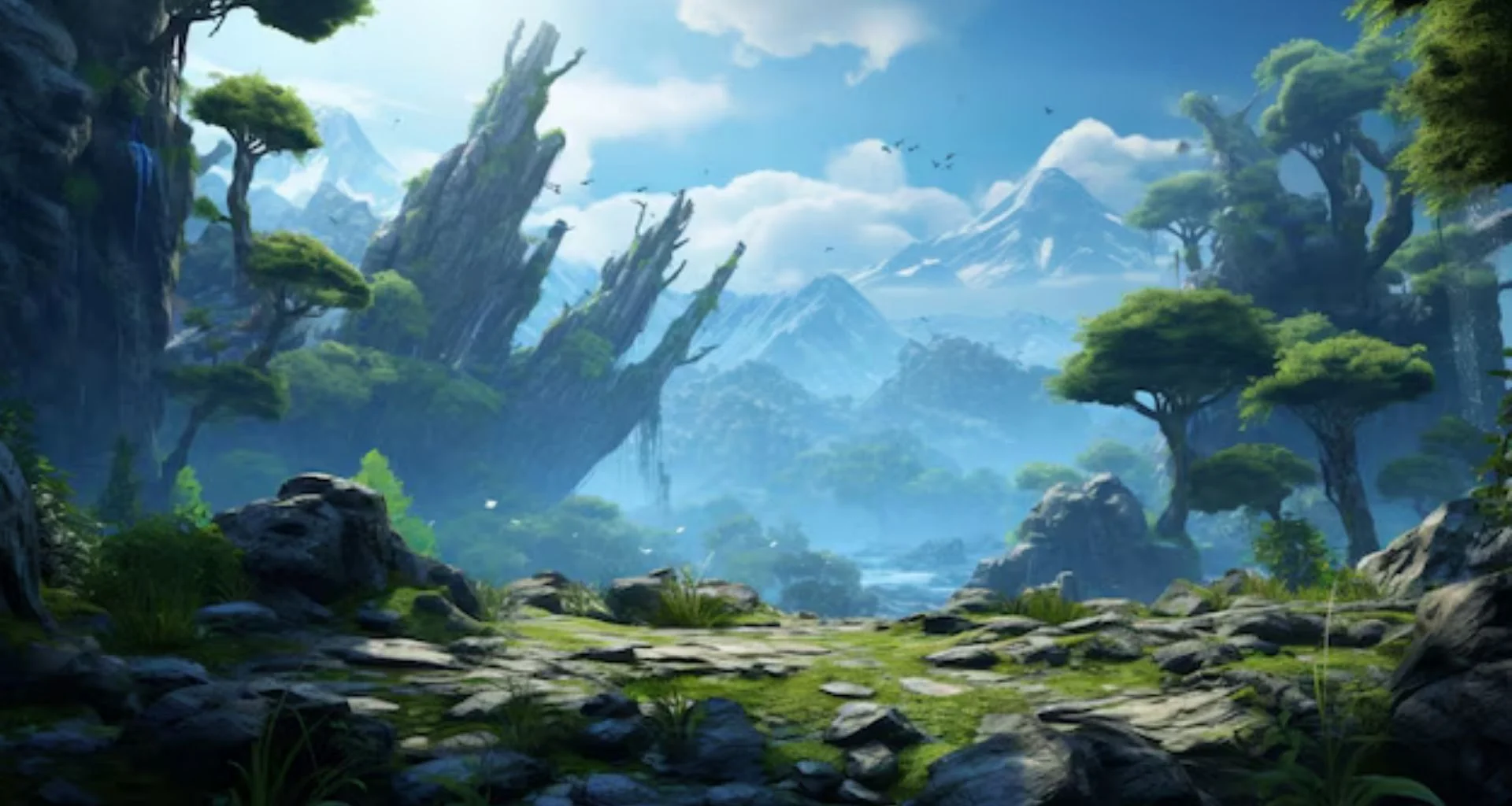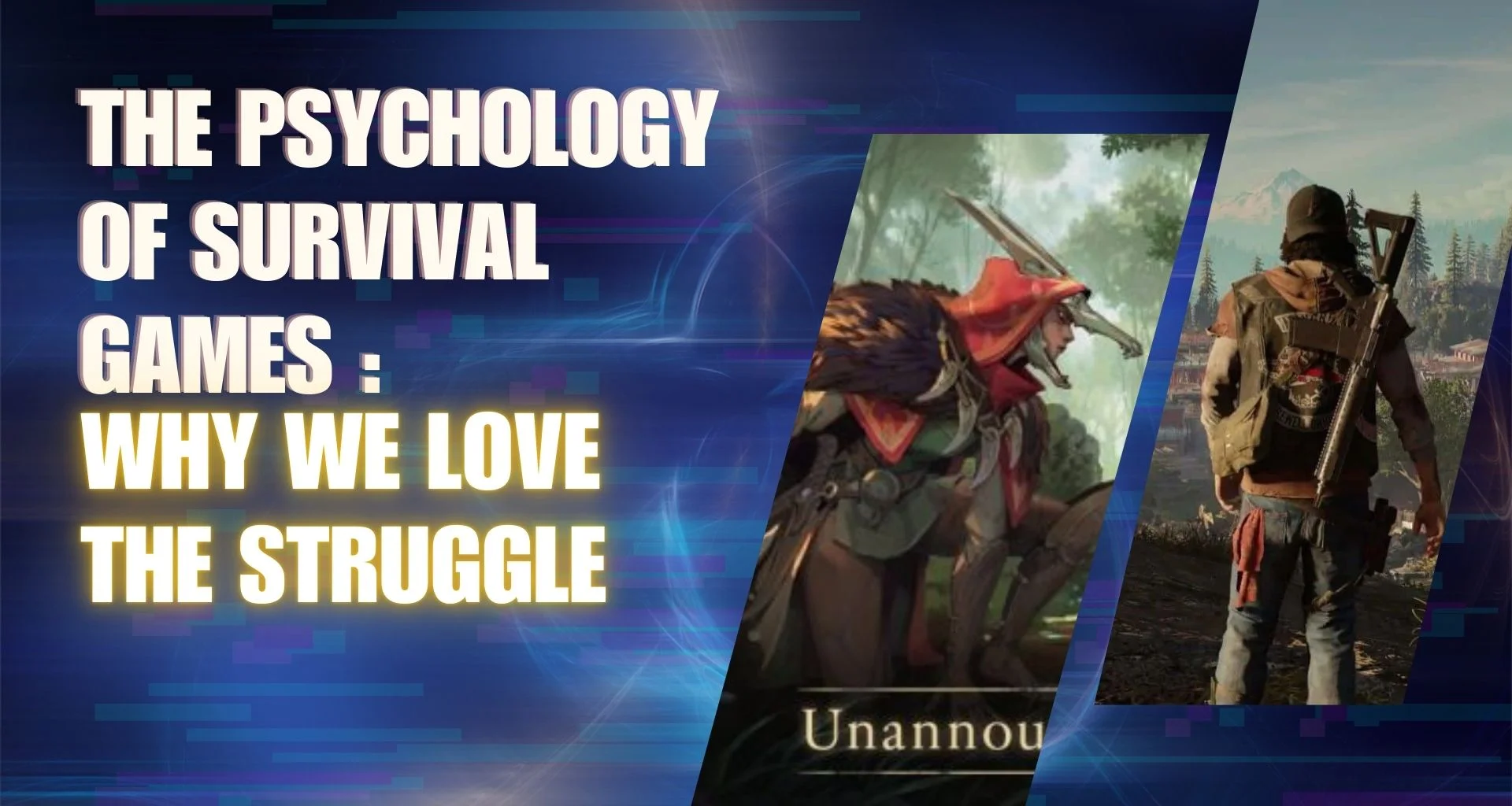Within the last decade, survival games have attained a remarkable deal of popularity. From fighting to survive in post-apocalyptic, zombie-infested worlds in DayZ to trying to navigate through the perils that come with being lost deep in The Forest, the world has been thrown into the world of survival games. So, what is it with these games that makes them so addictive, keeps you hooked, and has you coming back for more despite extensive hours of gameplay fighting elements, foes, and dwindling resources? It is rather much more than simply trying to stay alive.
Survival games tap into something deep-seated in us-a tangle of instincts, creativity, and mastery that meets some of our deepest psychological needs. Let’s jump in and take a look at why you find yourself playing these hard virtual landscapes. Controlled Risk: Thrill Without Real-World Consequences
One of the primary reasons you are interested in survival games such as Rust or Green Hell is the ability to experience risk and danger with no real-world consequence. Every decision feels like it has a really good chance of being life or death in these games. Do you go out into that dark cave for resources, knowing that a bear may be hiding somewhere? Do you raid that well-fortified base in Rust or try to make peace with its inhabitants?
These games let you flirt with danger in a way that’s exhilarating but controlled. You get to feel the thrill of being hunted or outnumbered, the rush of adrenaline as you narrowly escape a fatal encounter-all within the comfort of your living room. It’s an innocuous way to get your heart racing, your palms sweating, and to tap into the joys of adventure without tangible risk.
Sense of Mastery: Building Your Legacy
Survival games put you in the position of beginning to build from scratch. For example, in Minecraft, you could literally launch into it with your bare hands and large, cruel wilderness. As one starts gathering resources and learning the ways of this game, creation of tools, shelter, and even whole towns brings a really profound sense of satisfaction into being. Such a path-leading from a small and helpless noob to an experienced survivor who is capable of surviving in environments not so hospitable-is a very big driving factor.
Building a fort in Valheim or crafting a safe base in Ark: Survival Evolved can offer a sense of control and accomplishment that’s often tough to match within other genres. It’s not just about surviving but about mastering the environment, bending it to your will, and putting that mark saying, “Hey, I’ve been here, and I did thrive.” Every in-game night, every especially tricky task you survive-you are reinforcing your personal pride and confidence.
Creativity and Problem-Solving: Flexing Your Mental Muscles
Survival games are the ultimate playground for your creativity. How to make your base safe against hordes of zombies in DayZ, or how to create a makeshift raft to see what’s up that river in The Forest-you are constantly facing unique challenges that require truly innovative solutions. Problem-solving of this kind is engrossing and stimulating; it makes you think out of the box, encouraging you to look at obstacles from a different angle.
Games like Green Hell are such survival realistic jungle games that you really need to think about what you have on hand, plan your next move, and monitor for further threats. One minute you’re forging weapons; the next, you’re treating a poisonous snake bite. It is a mental workout that keeps your mind alert and your adrenaline pumping.
Community and Cooperation: Surviving Together
Well, anyone who has ever played Rust or any of these multiplayer survival games could tell you how much cooperation is involved. That tends to force you into alliances, community building, and shared purposes. You may find yourself working with strangers to chase away some other faction or with friends to build a better base.
Cooperative gameplay fosters a sense of belonging to something greater and a feeling of shared purpose. The friendships forged through the harsh struggle to live in these virtual worlds can be surprisingly strong. Whether you’re scavenging for food in DayZ or hunting trolls in Valheim, there’s something peculiarly rewarding about cooperating with other players to overcome adversity.

Escapism: A Break from Reality
Let’s face it, life is stressful. Between work, school, and the daily grind, everyone needs a little escape now and then. The form of escapism taken by survival games is pretty compelling. When you’re lost in the dense forests of The Forest or negotiating the dangerous islands of Ark: Survival Evolved, all those real-world concerns tend to just fade into the background.
These worlds give a mental break that’s not only soothing but rewarding, in a sense. You’re not just running away; you’re acting out an alternate reality where your actions have right in your face, directly tangible results. It’s like hitting the mental reset button-something that can be curiously therapeutic.
Overcoming Fear: Facing Your Inner Demons
Survival games usually pit you against your worst nightmares. Be it the dark, unknown depth of a cave in Green Hell or the unsettling quiet of a forest full of invisible threats in The Forest, these games really make you face them. Having the guts to just forge on despite tension and uncertainty can be really empowering.
The sense of overcoming such fears, even in virtual space, gives one a feeling of strength and accomplishment. Each time you face the darkness, every time you survive from a close encounter with a deadly enemy, you are proving to yourself that whatever comes your way, you would be able to handle it.
The Illusion of Control: Your Choices Matter
Survival games put you in the driver’s seat when life has become chaotic and unpredictable. You decide in which direction to go, what to build, and how to survive. Your actions have real consequences, and every choice can make the difference between success and failure. It is profoundly rewarding to have this level of agency when so much of life seems outside of your hands.
A huge factor here is that of the unknown. Games like Valheim and Rust have large parts of their open world maps that are uncharted territory, full of secrets, it would seem, at every turn. Nothing seems to egg on quite so well as the thrill of discovery-the pure satisfaction and joy of stumbling upon something new, unexpected. You’re forced to explore, to push the boundaries, to see what is over the next hill or across the river.
The Thrill of the Chase: Hunter or Hunted?
Much of the survival genre involves hunting, or being hunted. It’s an influence tied closely into the most base instincts, the experience exhilaratingly nerve-racking. You may be out tracking down supplies in DayZ, keeping watch for other players out there that may well be tracking you. In Rust, you’re only ever the predator until you become prey.
The element of the chase, the cat and mouse, prevents you from getting too comfortable and keeps your heart racing. This ties back to our most basic survival instincts: fight or flight. Within these digital worlds, one tends to do both at times.
Conclusion: Embracing the Challenge
Survival games, in the end, are much more than trying to stay alive. They’re about embracing the struggle, taking pleasure in the journey, and making a discovery of what one is capable of doing when the odds are against them. Be it building up a prosperous Viking village in Valheim, taking down mutants in The Forest, or surviving the perils that lurk through a postapocalyptic landscape, these games test one’s limits and come out stronger on the other side.
So next time you get lost in a digital wilderness, remember: it is not all about survival; it is about an adventure, a challenge, and the story created in the process. Perhaps that is why we love them so much, because every game is a new story to be told, a new challenge to be faced, and a new world to conquer.

